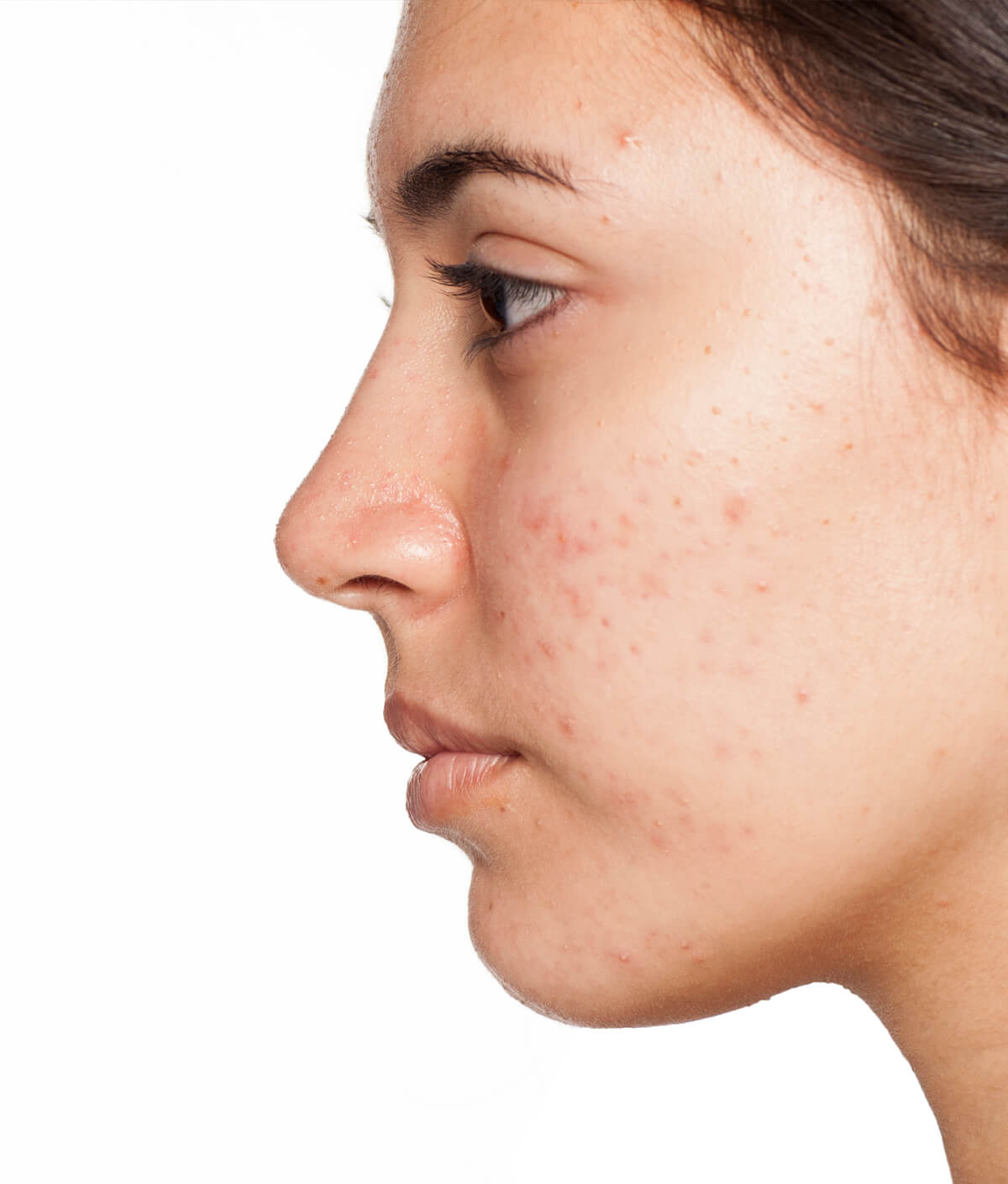Acne
What is Acne?
Acne is an extremely common inflammatory condition of the hair follicles and sebaceous (oil) glands. It’s most prevalent in adolescents but can affect people of all ages.
It's characterised by unsightly pimples, blackheads and possibly cysts on the face, chest, back and sometimes other areas. Severe Acne, if left untreated, can lead to permanent scarring. It varies in severity but at any level can cause devastating psychological impact, occurring as it often does during the difficult and stressful teenage years. Happily these days we have excellent treatments which will clear Acne in nearly all cases, although it’s important to start treatment early to prevent the risk of scarring.
WHAT CAUSES ACNE?
Acne is due to a combination of factors, though primarily with the sebaceous or oil glands, which are overactive and produce more oil than normal which is of a thicker than usual consistency. This leads to blockage of the hair follicles.
Bacteria caught behind the blockage then overgrows causing inflammation, leading to the visible appearance of pimples. Often there is a familial tendency to Acne, so genetics are partly to blame. The sebaceous glands act under the influence of the hormone testosterone, the levels of which are naturally high in adolescence, especially in males.
Polycystic ovarian syndrome in some women can predispose to Acne as can certain drugs or medicines, notably anabolic steroids. Occlusive (pore-blocking) cosmetics can also worsen acne as can high environmental humidity. The jury is still out as to whether diet can aggravate acne.

How is acne treated?
Acne is treated according to its severity. It’s not a disease of poor hygiene but washing the face twice a day with an appropriate cleanser is recommended.
A general theme when managing Acne is that treatments will control the problem rather than truly cure it, so treatments may need to be used continuously until the disease naturally disappears by itself, typically with age.
Mild cases will often respond well to topical products or medicines. More severe disease will usually need systemic (tablet) treatment. Anti-inflammatory antibiotics such as Doxycycline can often work very well and in women the birth control pill can sometimes be a good option.
For severe scarring disease when other treatments have failed, Isotretinoin (Roaccutane), a synthetic vitamin A derivative, is a wonderfully effective option that in most cases will fully clear Acne and often permanently even after stopping treatment. Roaccutane can only be prescribed by your Dermatologist.
